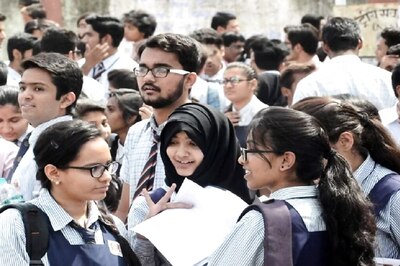
views
Across Asia, whether it be Himachal or Coorg in India or the Swat valley in Pakistan, there are many tribes who claim descent from Alexander the Great. The Kalashas are one. In the steep and secluded valleys of Nuristan in Pakistan, once they numbered in the tens of thousands.
Today, they are merely around 3,000. Their oral history describes them as children of 'Salaxi', their name for Alexander. In the 20th century, the majority of them were forcibly converted to Islam.
A way of life that flourished for 17 centuries high in the Hindu Kush mountains of Pakistan's Northwest Frontier Province, about 25 miles from the nearest city, Chitral, threatens to wipe out the culture and traditions of the blue-eyed, fair-skinned Kalasha people, also called Nuristanis.
The Taliban have spread across Pakistan from Afghanistan, propagating the harsh, unforgiving mores of Wahabbism. The conflict in the region had even placed Swat on the Doctors Without Borders annual top-10 list of under-reported humanitarian crisis.
As militant Islam entrenches itself in the regions surrounding the Kalasha - especially following Pakistan's cease-fire agreement with the Taliban in the nearby Swat Valley in 2009 - they face conversion and the destruction of a society where women are not subject to the rules of men. Kalasha women wear colourfully embroidered dresses, head dresses beaded with cowrie shells, called 'susutr' and colourful necklaces.
They have a strong position in society, and decide matters of the heart in their favour.
Young women choose their husbands themselves; if they are not treated well, or the marriage doesn't work out, the wives walk out and find a new partner.
There is a condition, though; the new husband of choice has to accept a written proposal and give two times her dowry to the abandoned husband - often in cattle.
Children born of multiple liaisons are not ostracised in the pastoral Rumbut Valley where the Kalashas live in simple one-room huts, far from the gunfire and madness of medieval machismo - crystal clear streams flowing along fields and orchards of walnut, apricot and mulberry trees. They are a carefree people, and crime among them is almost unheard of.
Alexander Gardner, an eccentric Scotsman who spent most of the years 1817 to 1830 wandering all over the western Himalayas, was very taken with their women. He wrote that "they have hair varying from the deepest auburn to the brightest golden tints, lithe figures, fine white teeth and the loveliest peach blossom on their cheeks."
The Kalashas are polytheistic, and therefore anathema to Islamists. They worship in ancient wooden temples whose doorways are decorated with branches and flowers during festivals.
The Kalashas celebrate four major festivals, each one beginning at sunrise, when the villagers partake of goat's milk and a sacred fire is lit at the altar of the temple. They practice ancestor worship, offering goat's blood, wine and honey to the spirits of the departed ancients.
In the evenings, young girls sing and dance together to drumbeats and flutes, cheered on by the men. Kalasha festivals and rituals include a rite of passage in which a prepubescent boy is kept in the mountains for one summer, and upon returning is allowed to have sex with any woman he chooses—a practice disapproved of by local Muslims who call them 'black Kafirs' in spite of their fair skin and violet eyes.
According to Wynn Maggi, anthropologist and author of Our Women Are Free, the Kalashas suffered a lot in their history. They were "brutally and forcibly converted to Islam, horribly persecuted, put in jail ...". Many of their women were abducted and forced to marry Muslims and many Kalasha men were reportedly forcibly circumcised.
Scientists and anthropologists dismiss the Kalasha claim of an Alexandrian connection: no genetic ties have been discovered between them and Greeks.
They believe the Kalashas are Indo-Aryans who have religious commonalities with pre-Zorastrian Iranians.
Though the Pakistani government has given them protected status and government support, the shadow of violent Islamist militancy looms over this centuries-old culture that believes in making love and not war.


















Comments
0 comment